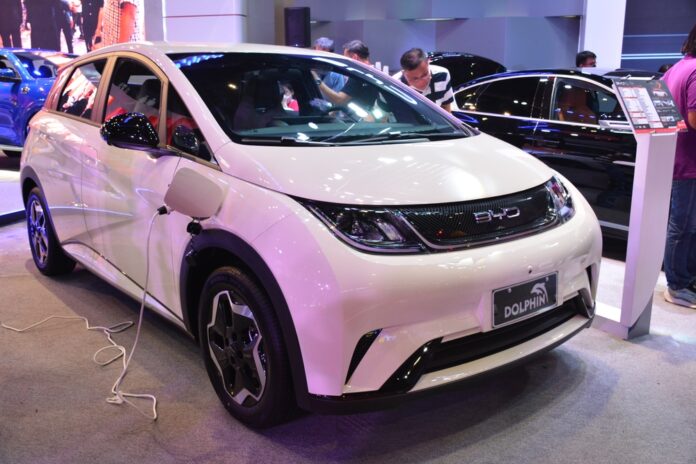The Department of Energy (DOE) said the commuting public is seen more receptive now to electric vehicles (EVs) than before, given first-quarter sales this year exceeding numbers the past three years.
But Energy Secretary Raphael Lotilla, at the 11th Philippine Electric Vehicle Summit in Pasay City on Thursday acknowledged the industry remains facing challenges including high acquisition costs, inadequate infrastructure and lack of technical support.
The Electric Vehicle Association of the Philippines said EV sales in the first quarter total 2,536 units versus only 426 units in 2022.
From 2010 to 2022, the industry sold only 14,357 units.“Apart from replacing fossil fuels, the optimism around EVs is increasing because of benefits in terms of increased energy efficiency and reduced local pollution. In the Philippines, as previously noted, the market for EVs has grown significantly and expected to grow over the coming years,” Lotilla said.
Under the government roadmap, the target is to convert 50 percent or more of all vehicles in the country to EVs and cut emissions by 1.9 million tons and raise a network of over 100,000 charging stations by 2040 to create an estimated 40,000 jobs in the manufacturing and technology support sectors.
“These figures are not mere statistics. They are milestones in our journey, guided by the Comprehensive Roadmap for the Electric Vehicle Industry, which sets a minimum 10 percent target EV share for all sectors, excluding EV trucks by 2040 under the business-as-usual scenario. On the other hand, the aggressive clean energy scenario sets a more ambitious target of at least 50 percent of all fleets by 2040,” Lotilla said.
According to Lotilla, the goal is pursued through a phased approach to improve EV utilization, promote EV manufacturing, EV research and development, human resource development as well as improve relevant policies and credit programs.







